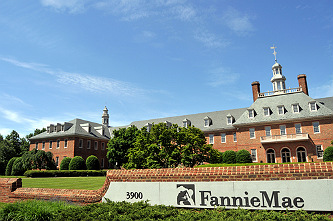Here is American politics in a nutshell:
“I’m glad to see they’re trying to rein in Fannie Mae, but I think I’m being disproportionately penalized,” said Rayn Random, who is trying to sell her house in the hills for $849,000 so she can move to Florida.
Actually, that’s probably everyone’s politics in a nutshell. The issue here is that in 2008, after the collapse of the housing market, the federal government raised the limit for the size of the home loans that Fannie Mae would  guarantee. Now, three years later, they’re planning to lower the limit back to near its old value. This is a small step toward limiting Fannie Mae’s involvement in the mortgage market, something that’s almost a unanimous, bipartisan goal.
guarantee. Now, three years later, they’re planning to lower the limit back to near its old value. This is a small step toward limiting Fannie Mae’s involvement in the mortgage market, something that’s almost a unanimous, bipartisan goal.
But no matter how broadly supported a policy is, there’s always somebody who’s going to get the short end of the stick and is convinced they’re being singled out for unfair treatment. In this case, it’s upper middle class homeowners, who might have a bit harder time selling their homes and might have to pay a bit more when they’re buying one. This is, of course, the free market in action, but no one in the housing industry cares about that when it’s their paychecks on the line:
The National Association of Realtors, 8,000 of whom have gathered in Washington this week for their midyear legislative meeting, is making an extension of the loan guarantees a top lobbying priority….The Mortgage Bankers Association has opposed letting the limits drop, although a spokesman said its members were studying the issue.
I’d peg the number of genuine believers in free market capitalism at about 1% of the population. Maybe. The rest of us just want whatever policies benefit us the most. And the richer you are, the more money you make from policies that benefit you. Among the rich and the corporate elite, true believers in the free market probably number about 0%.

















